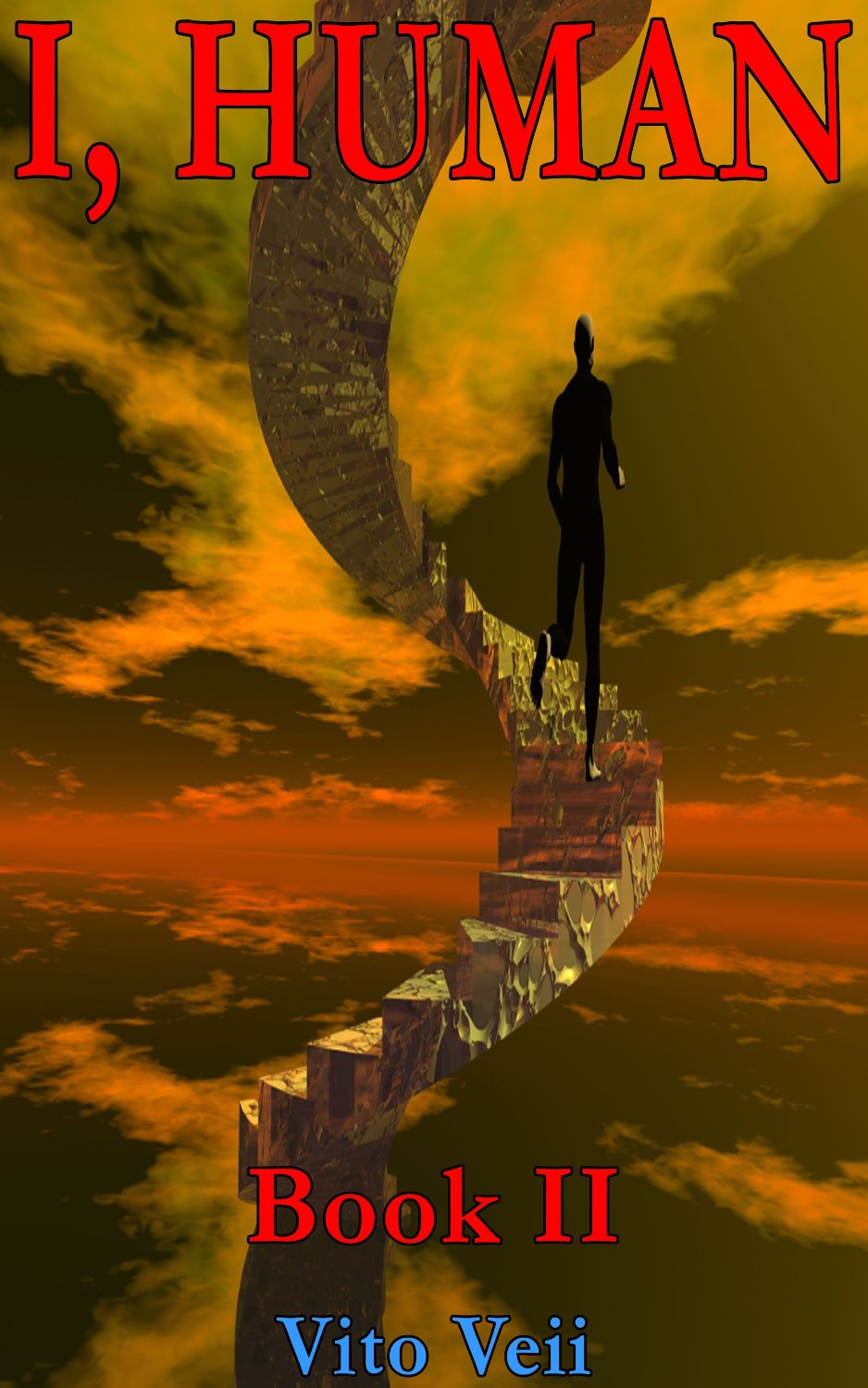Book Review: I, Human (Book II) by Vito Veii

The second book in the “I, Human” series continues the adventures of Captain Marcus and his android, Vlen, as they explore the space to learn more about other planets and their inhabitants. The Captain is now in command of an entire fleet. The major part of their mission is to find and colonize a new world, and for that they build space stations that are used for communication and astronomical observations, and they make contact with alien civilizations, trying to exchange knowledge and learn about their technological advances. Their mission is a diplomatic one, so the readers get the chance to explore a lot of the universe Vito Veii created.
Just like the first book, “I, Human II” raises thought-provoking questions about what makes us human and what it means to have a spirit or a soul. One of my favorite chapters is Chapter 8, which is written from Vlen’s point of view. The android is one of the most interesting and intriguing characters in this series. Though a robot, he is capable of thoughts and emotions – something that even his creator finds it hard to believe. Vlen has a very long and complex discussion with the ship’s Chaplain, Padre. The Chaplain is impressed by how advanced Vlen is, and when the android claims that he can experience feelings and emotions, he challenges him to explain how he came to this conclusion. What follows is a mind-blowing Socratic discussion on the existence of what we call the “I”, on the spirit and the soul, and on the idea that thoughts make us what we are.
So, if thoughts make us human, then what exactly is Vlen if he is perfectly capable of independent thought, and he even learned what feelings and emotions are through close observation of the people around him? Is he still an android, or is he something more? The discussion between Vlen and the Chaplain is not only very clever and well carried, but it is also very entertaining in a way that makes you stop after each paragraph and consider what you’ve just read. For instance, after finishing the book, I couldn’t take my mind off Vlen’s conclusion that when thought stops people will discover that the “I” doesn’t exist and it has always been just an illusion.
I would say that the second book in the “I, Human” series is even better than the first one. Now I can’t wait to read the third book, because I have a feeling this series is only getting better and better with each installment.









